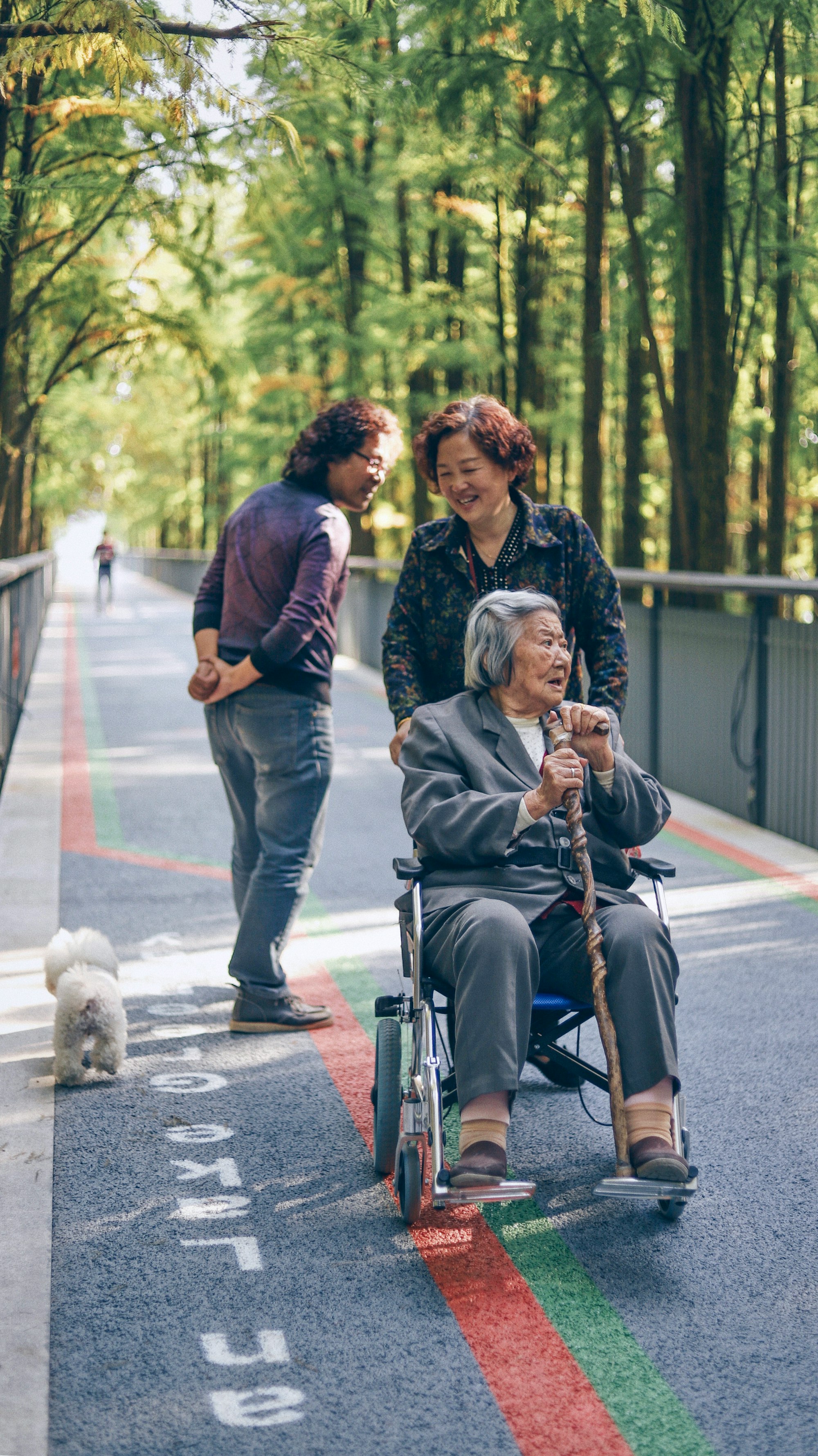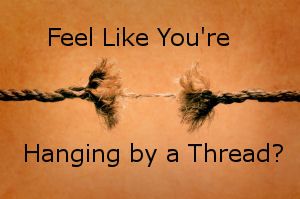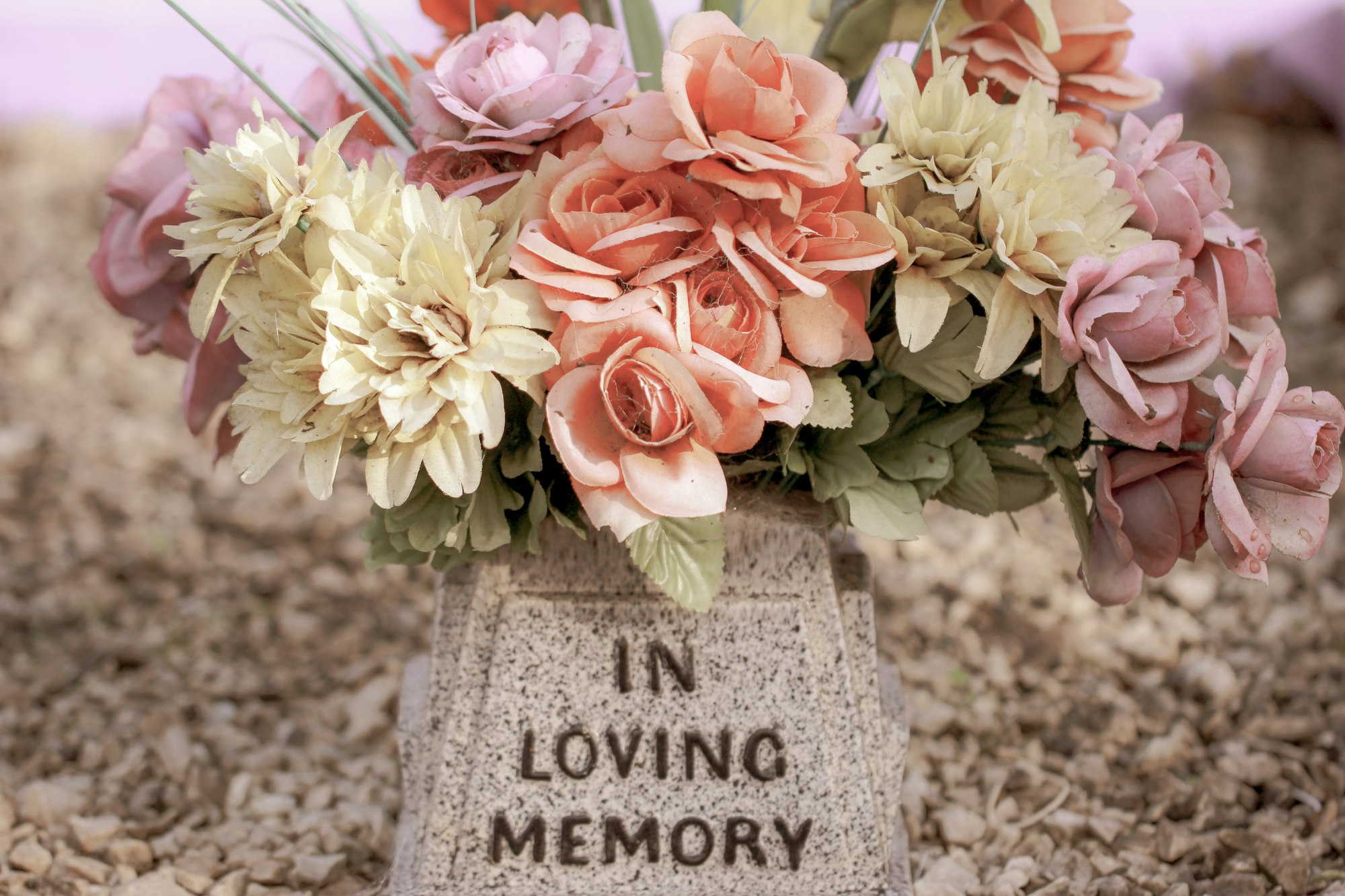Bereavement, Grief, and Mourning with Pat Deegan RN - Episode 22

Welcome to Episode 22 of our podcast series, where we delve into the intricacies of bereavement, grief, mourning, and how to cope with loss. I'm Diane Carbo from Caregiver Relief, and joining me today is our end-of-life specialist and podcast contributor, Pat Deegan.
In this episode, we'll explore the multifaceted aspects of grief, its various forms, stages, and its impact on different individuals. Whether you're currently navigating the grieving process or seeking to support someone who is, we aim to shed light on these challenging experiences and offer guidance.
Diane Carbo: Hi, this is Diane carbo with caregiver relief. And today I have pat Deegan with me she is our end of life specialist and regular podcast contributor, pat, thanks for meeting with me again today. Our topic today is going to be on bereavement, grief, mourning, and coping with loss.
Pat Deegan: That’s a big agenda with bereavement. We’re all going to die, whether we like it or not. there are so many ways that. People can die. And I think it depends on how the person has lived as we said from day one communication with your family, your doctor and stuff is imperative.
Pat Deegan: I want to go over a couple of the different kinds. I there’s been a lot of studies about children. What, how old are they when they start to grieve? I think generally that’s generally speaking between seven and eight. Kids can really grasp the meaning of it. They can get , into it a little bit more.
Diane Carbo: You know what, I can actually attest to that because I was between the ages of seven nine when my grandmother died. My mom’s mom. Then I had a young boy classmate, Joey Buffalo, who died of leukemia and was actually was laid out at home. I can remember feeling so sad for my grandfather, that he had lost his wife. And I remember feeling very sad for Joey’s parents, because they had lost their son.
Pat Deegan: That’s gotta be terrible to lose a child. I just cannot imagine, never get over it. And many triggers, like their birthdays are the first Christmas, the first Thanksgiving.
Pat Deegan: Just anything of the road they might’ve been killed on. You think about, there’s so many of them and I don’t think a lot of people. Remember that when somebody is very sad or despondent that, oh gosh, this is the time that they were killed on the highway or something. And we just think of like mass tragedies, I think of nine 11.
Pat Deegan: So we lost, over 3000 people and yet, the outpouring from all around the world. It meant a lot, I’m sure to people and a lot of people will set up memorials but that’s a nation grieving, but yet everybody can grieve their own way. The other one, I think that people don’t tend to think about are people that are in long-term facilities. Yes. A couple of patients, one patient will die one day and then another one will go like a week later and stuff.
Pat Deegan: And they, the staff, for some reason, just don’t think that the other patients or residents there feel the loss, but they do because these were people that they saw every day. Baby shared a table with whatever, and all of a sudden they’re gone. So they grieve a loss just as much as anybody else. And I think we tend to forget that sometimes when they were a nursing.
Diane Carbo: You know what you’re absolutely right about that. And I think that the facility sometimes may hold memorials or they just don’t talk about it at all. I think it’s really important for family members to realize of aging parents, that when you hit your fifties, sixties, and seventies, You lose a lot of your family members, your friends pets, you’ve gone through a lot of death and dying, so you’ve had a lot of loss and that takes a toll on you over time.
Pat Deegan: Oh, it certainly does. It really does. You grew up those things, but when you take them separately, like you just did. Piece by piece. That’s when it really hits you because we do suffer all kinds of losses, like in pets and stuff. But we kinda, I would’ve ask, that’s a long time ago, but it’s still part of the grieving process for everybody.
Diane Carbo: Exactly.
Pat Deegan: One of the, Saturday. Types of bereavement, maybe the ones that probably need a lot more in-depth counseling or homicides and suicides. For many reasons, I think the people that are left are numb, they’re absolutely in shock. They’re in denial, all the things that you all the different anticipatory grief, it goes through all at once.
Pat Deegan: And so many of them blame themselves. Why didn’t we see the signs now? Of course, there was always a stigma to suicide. That’s getting a little better because we’re talking more and more about mental health. It’s not that it’s normal. No, it’s not. But years ago we never talked about it. It was just swept under the rug.
Pat Deegan: Whereas now it’s out in the open and people have to admit it and talk about it. And I think with both of those homicide or suicide, there’s such an intrusive nature to the news, the publicity, the media. And that’s something that, I don’t know how we can deal with that. You can turn it off if you don’t want to hear it.
Diane Carbo: As the mother of a son who completed suicide disabled, that, that had a chronic pain condition. I want people to know that there are 22 vets a day that have been killing themselves every day for the last 20 years. It has to do with the medical delivery system, the lack of mental health for our vets.
Diane Carbo: I know there’s a stigma to death by suicide, and there’s a stigma to somebody who kills a homicide and we’ll talk about this at another time as well, but there’s an increase in elderly suicide, homicide suicide, because. People are living longer. And those spouses that it’s usually a male spouse that is in his late seventies or eighties, that is taking care of his wife with dementia and feels hopeless and helpless.
Diane Carbo: And over time decides this is the option. But you’re right. There is a stigma to things that affect our grieving process, our mourning and coping with loss. People don’t know what to say to you.
Pat Deegan: That’s the truth. I’m glad you said that. I came up with, oh, it’s quite a while ago, many years ago now of things that people.
Pat Deegan: Often say, I’ll just give you an example. When somebody dies, it doesn’t matter that, the circumstances, but they’ll say, oh he’s in a much better place. No, he’s not because he’s not here with me, but don’t say something like that.
Diane Carbo: Yeah one of the things I can tell you, I experienced as a young woman who lost her mother at 18, I was in nursing school and when my mom died, people avoided me and the same with afterward after my son died, Jack. People don’t know what to say to you. There’s always this big rush during the, what they call the bereavement time designated by employers or whatever, the three day period of bereavement. That people are there, flurry, they come, they say, hello.
Diane Carbo: I’m sorry to hear this. Or like you say, they’ll say things while they’re in a better place, they’re out of pain. I get that. But it’s really after that period where it’s very difficult for the family, the person is grieving because people avoid you or They just don’t interact with you because they don’t know what to say and they’re feeling uncomfortable.
Pat Deegan: Exactly. And that’s why I came up with some of those suggestions, let’s say. And what to say, because like you said, people are, we’ve always put death on the back burner and we don’t want to talk about it. Cause it’s not a pleasant topic and people don’t want to admit it, you know that, Hey, we’re all going to die, but I will find those things. I’ve always kept them because I thought, gosh I’ll use some myself.
Diane Carbo: Absolutely. We have to remember that morning is an outpouring of grief and it’s a time when you share it with the public. There are some religions require a certain timeframe for mornings like the Jews, the Eastern Orthodox Hindu and Muslim religions.
Diane Carbo: More actual morning periods. A society also puts a timeline on your more mourning period. Like 12 months is a common timeline. Really? My mom’s been dead 50 years and I still have periods of grief and mourning and Jeff. 10 years. There are times where they, you have to wear black and there’s no dancing or celebrations.
Diane Carbo: You put the black Reese on the door or cover a doorbell or a knocker. Those are ways to let society know you’re in mourning, but you know what I have to tell you it’s there are no rules for morning and there’s no way to show people what you’re feeling inside. There’s no way to help you cope when you publicly announce it. It’s hard.
Pat Deegan: People are afraid. I think especially men, they don’t want to cry or show their emotions to other people. So they hold it in and they keep holding it in until it, it just has to let itself out and that can happen in any multitude of ways that they can express it.
Pat Deegan: But I don’t know if the stereotypes that we have set upon people are ridiculous. It probably need to be revised. I believe that’s, I wanted to touch briefly. On bereavement in the workplace. There was an interesting case study. And I’m not gonna read the whole thing, but to shorten it a, she was around maybe 50.
Pat Deegan: She called her boss. She had worked at this, but this company, like for 30 years she called to tell him that her daughter had died in an accident and that her son. Had alcohol and he was the cause of the deaths. So she’s mourning two things. Her daughter’s dead. And just because of her son the manager said, oh, something like, oh, I’m sorry.
Pat Deegan: And that was all. And then he said, oh, we have a bereavement policy here somewhere in the desk and shoved her off. So then. He said, oh, I’ll get back to you. Okay. So he tells the secretary, what’s his name? We’ll say Anne’s daughter died in a motor vehicle accident. Please go tell everybody.
Pat Deegan: So that’s what she does. She doesn’t know anything else about it. And she just tells people that she was, oh, and his daughter died in a car accident. She knew a few people and then calls one of the girls that works there and said, told her the whole story and asked her if she would. Yeah. Tell everyone that they’re invited to the, the the viewing the next day
Pat Deegan: for whatever reason, I guess the girl did, but nobody went to the viewing two days later, she gets a letter from the committee. It has the upper room. It policy is you have four days. That was all, nothing else like that. They were sorry or anything. So she does the four days as she goes back to work.
Pat Deegan: And she is useless because she nobody’s talking to her because they don’t know what to say. And she’s got all this stuff pent up and why aren’t people talking to me and all these other things. Everybody, no matter what kind of an office it is or what kind of a business it is, needs a bereavement policy, whatever it is, it has to be somewhere.
Pat Deegan: And at least to be a little bit more, to be more caring. He was absolutely heartless. And of course that was brought up in the case study when they were talking about. Maybe he never had the opportunity to talk about death who knows physical reaction. They make mistakes that they come in late, they don’t do their job. And it wears off on the other employee. There’s no doubt about it. That’s just something that , they’ve got to do something about that.
Diane Carbo: I can tell you , having lost my mom at I was in nursing school. So I was just a freshman in nursing school had just started in September and she died in December.
Diane Carbo: I can remember everybody wanted me to quit nursing school when she would stay home to help. My dad raised my other brothers and sisters, and my mom was so excited and proud that I was going to be a nurse. I stayed. I moved out of the dorm and I drove back and forth every day, which in nursing school was a real struggle as pat and I did graduate, but I can tell you that I never took time to grieve.
Diane Carbo: I never took time. And my dad got in a relationship early on and was married within a year after my mom died to another woman. We weren’t allowed to talk about my mom. So I know for my personal experience that I have complicated grief. I still, to this day, 50 years later, when Christmas comes around, I really am challenged by that.
Diane Carbo: You know what, Jeff’s, birthday’s coming up, his birthday’s July. You can’t control what you don’t even know what’s happening. Sometimes you have to just allow it to happen and feel those waves of grief. There are times when you just have moments where you just break down and cry.
Pat Deegan: Yeah. It’s like waves of grief. Come upon. You like to, I always think of it like the ocean. It could be very still. And then these waves just come crashed it in when you least expect.
Diane Carbo: Yes. Yes. And I have to tell people that out there that, you have to face your grief. And even though it’s hard to handle.
Diane Carbo: If you ignore it and you push it down and keep it in, all it’s going to do is make you face it sooner or later, the challenges. You have to allow yourself to heal. And I feel like over time you get better. You do. And you never forget one of the things I have a hard time with is sometimes people will say to me you should be over that by now.
Diane Carbo: Yes. Oh, how insensitive is that? You need to get over this. It really, you know what it is. And everybody grieves differently. Yeah.
Pat Deegan: There’s no time limit for grief. Generally we will say oh, maybe six months, maybe a year. But some people, a lot more than that.
Pat Deegan: Yeah. Really true. Yeah. That’s why I don’t think there’s any time limit and they, people shouldn’t be rushed. And I think you sometimes get that when you go into group therapy, you’ve always got one or two people that, okay, everybody now we’ve all got 10 minutes a piece, just so you know, your story or whatever and then there’ll be always be a couple of them. It’ll take a half an hour and how does everybody else feel so that the person that’s running this or the counselor, she, he, or she has got to step in and say, wait a minute. We’re only allowed to 10 minutes. And then there’s the one that thinks he knows everything and said, doesn’t agree with anything.
Pat Deegan: Yeah. And that’s, oh how do you feel that? Then women will say when I’m cooking something, it reminds me of him. That’s ridiculous. That doesn’t happen. That’s all in your mind. You hear this all the time, but they’re so self-centered, and they don’t grasp the meaning of what it feels like. I don’t care what they say.
Diane Carbo: Yeah, exactly. I have been in those groups and I have had those experiences and it’s uncomfortable at times because people continue. You want to move forward to a healthy new year. And you shouldn’t have feelings of guilt. And sometimes the feelings that we have, we’re trying to learn to live differently without that person in our life, and to learn, to live a full life again.
Diane Carbo: And these thoughts can be overwhelming at times 10, 15, 50 years later. And you have to. Readjust and continue to move forward to a healthy you, and that means sometimes taking extra care of yourself.
Pat Deegan: Oh, oh, that’s so important. That’s where it comes. You’ve got to take care of yourself to take care of others. And if you do, it’ll just eat away at yeah.
Diane Carbo: Yes. And you know what? One of the things I do is I always say I step off the world for awhile. I shut out society, so to speak. I turn off the phone and sometimes I just have me time.. It’s important to do that. There are natural effects that we have of grief and, our brain produces a bunch of hormones and neurochemicals and you feel foggy.
Diane Carbo: I’ve had the brain fog and some people say they felt like they had been having. Alcohol. I’m not a drinker. I’m an adult child of an alcoholic. And I’m the one to four that of my siblings that probably doesn’t drink. Which is okay. I’m not making judgment here. I will drink, but I don’t like the way it makes me feel, but it’s okay to feel like we don’t have it all together.
Diane Carbo: Even now there are times. Especially after Jeff death that I don’t feel like I have it all together. And it is, and they’re natural and brain does protect us from overwhelming feelings of grief and we’ll start to put things back together again. And I do, and sometime to just, I need to have counseling sessions or go back, to reading some things. I will tell you that I do exercise.
Pat Deegan: Oh, okay. That’s a very good means. Yeah, like yoga and all those other things, absolutely
Diane Carbo: physical activity can actually improve your feelings of fatigue, brain fog and mild depression. And that’s a good thing. Cause it releases endorphins. I love to walk on the beach and I’m very social. So just getting out. And adjusting to life after a loved one, gone is important. It does take time and effort and it will be slow. And let me tell you, 50 to 10 50, 20 years later, I’m still adjusting. And I still work to develop a healthy routine for myself.
Pat Deegan: Good for you. Yeah. You got to take care of you, me as important. Take a me day. Yeah, absolutely. Yeah. That’s true too few of us. Take the time to do that. Or to recognize that we need.
Diane Carbo: You know what, when people start telling you, you need to be over this or, you need to move on, you really do. I do, I try really hard, but there’s just times when I have to step off the world and allow myself to feel the way I do. It’s debris, pat, you have to take the bandage off, allow the bleeding and whatever to occur. And. Deal with those feelings again, and each time it heals a little bit more similarly,
Diane Carbo: if you think about it, that’s what it is. I can tell you that, some people, because they don’t deal with their grief on a regular way, have some really profound, emotional reactions that can cause anxiety attacks, chronic fatigue, depression, and some have thoughts of suicide.
Pat Deegan: Yeah. Yes. Unfortunately, that’s how some people, we don’t feel, think there’s no way out. I can’t cope with this anymore. It’s just overwhelming. And that’s when they think of, things like that. I don’t know. I think that’s another whole thing. Like we said before, we’ll talk at another time about these people that are in their nineties and a nursing home, and all their friends are gone.
Pat Deegan: Nobody comes to visit and, they have aches and pains and nothing’s right. And they feel what’s the use of stuff. Is this bad.
Diane Carbo: Yeah. And I can tell family members out there, you have to help others grieve and don’t avoid them. Encourage them to talk about their feelings of loss and share memories.
Diane Carbo: One of the things I do . I called my son Casey up the other day and said to him, you gotta call me. It’s just, birthday’s coming up and feeling bad. I need to talk to somebody about Jess and.
Pat Deegan: Yeah. I’ve just got a support person and that’s important.
Diane Carbo: Yeah, exactly. The other thing is people don’t offer false comfort. It doesn’t help the grieving person. When you say it was best or you’ll get over it in time, just show a simple expression of sorrow. And just sometimes all you need to do is hold the hand to put your hand on his shoulder and just listen to a person. So we’ll wait. Yeah. Like you can even say, Hey, listen.
Pat Deegan: If you feel that bad and you want somebody to talk to I’m here and I’ll listen to just call me that for somebody to listen and acknowledge that they are in pain.
Diane Carbo: Exactly. You can’t, there’s no price will cover that up now, because most of the times they just want somebody to listen. Yes.
Pat Deegan: And the more you talk about it, the better it gets that you can cope with it a little bit better. I have a friend .. She will not drive on 5 44 because that’s where her husband crashed and died. She absolutely cannot. She’ll go five miles out of her way because she can not put down 5 45.
Diane Carbo: I have people that have similar feelings. Like they can’t go to a certain place or they can’t, have a conversation with a certain person because of what the relation to the desk. I want to tell people though, I want them to also know that, you can offer practical, help to somebody that’s grieving.
Diane Carbo: We’re all ready to. Bring food and do things during that notify brief period, whatever that is. But you know what? Sometimes people need it later much later. No, offer to take them out for coffee or just make yourself available to talk because you need to be patient.
Pat Deegan: Yes. And I think people that have suffered a loss tend to be more receptive or more of somebody else’s needs to talk about it.
Pat Deegan: That’s just my own thing. Having grieved my husband and stuff, and my parents were still alive to have somebody else that I could talk to that had lost a husband. We bounced off each other all the time. Whenever I wake up a little tougher than usual. And that was great.
Pat Deegan: Because we understood where she was coming from.
Diane Carbo: Yeah. That’s why I, when I lost my mom, I didn’t get any grief counseling. That was 50 years ago and they didn’t have it then. And you just were to suck it up and get on with your life. Yeah. That’s why I’m sure I still have issues, missing my mom.
Diane Carbo: Not that I wouldn’t have missed her Mister anyway, but it’s really hard. It was just an unhealthy dysfunctional family. She’s gone. It’s over move on. One of the things that I’ve learned over the years is that especially after Jeff’s death, is that losing someone? How do I want to put this?
Diane Carbo: Is it especially to do aside, it’s difficult to lose. And you feel a tremendous amount of guilt, anger, and shame due to suicide. I also felt because I didn’t have grief counseling or have someone to talk to me. Burden of guilt, anger and shame because my mom died because she was sick with cancer.
Diane Carbo: And here I was 17, 18 year old girl taking care of her at home. She would have bout of severe coughing and she had a thoracotomy and an incision into her chest cavity where gallons of fluid. Would come out and I was left to be the caregiver for her. Cause my dad just couldn’t deal with it.
Diane Carbo: He couldn’t handle it. So I think that I was angry at my mom for being sick. I had, I think for decades, I had such a tremendous amount of guilt and shame because I was angry at her for being sick and it went on a dress. But now you can see that talking about it. Absolutely.
Diane Carbo: Yes. And it’s made a tremendous difference in me. That’s why I’m a big advocate of, get out there, do talk about end of life issues. Don’t be afraid. Learn about grief and grieving and what you can do to get over because there is life after
Pat Deegan: you’re right.
Diane Carbo: And someday the pain will lessen and you’ll have still have those cherish memories of your loved one.
Pat Deegan: Yep. Yeah. You’ll never forget. You’ll get over a pixel. You’d never forget. But like you said, it’s the memories that sustain us, for years and years, think of the happy times. Not the bad times.
Diane Carbo: Exactly. And that’s what, one of the things that I work on with Jeff staff is I start taking up new hobbies. I’ve Had, travel, I, share things with, like I call Casey up and say, all right, you have to talk to me. People need to do something to incorporate a Memorial attribute to leave your loved one.
Diane Carbo: You may do some new family tradition. I know with Casey, he started a ketamine clinic. And he did that in honor of his brother who had a chronic pain condition and was a vet. And now he’s helping that. So I think that’s, that’s a living Memorial to Jack.
Pat Deegan: Yup. He’s channeling all that into that. That’s marvelous. That’s wonderful. I’m sure he’s happy. Like when you tell him to call, because then your, the two of you were sharing the same experience. Most need it. And of course, guys, Ask for help sometimes.
Diane Carbo: Very true. Oh, that’s very true. And I’m going to mention one more thing.
Diane Carbo: People can start a grief journal and, make sometimes writing out some thoughts and feelings through the grief process. It just provides a private and safe space to express yourself. No matter how weird or negative your feelings may be. That’s another way to focus on positives and it can be very beautiful and a life affirming attribute to the person that you’ve lost.
Pat Deegan: Yeah. I’ve been writing a journal for over 20 years and it’s really amazing. It’s funny. Sometimes when I look back at some of the things that I wrote and whatever.
Diane Carbo: And what, how you were feeling. Absolutely. I think that’s touching. I think that’s very touching. Pat, I thank you so much for your time today.
Diane Carbo: I think that I hope we’ve helped others out there with their grieving process. And with that, I’m going to end with the way I always do to tell my caregivers out there. Remember you’re the most important part of the caregiving equation without you? It all falls apart. So learn to be gentle with yourself, practice self-care every day, because you are worth it.
Diane Carbo: All right, pat, next week, I’ll talk to you.
Pat Deegan: Okay. Thanks a lot. Bye bye. Bye.
Conclusion:
In closing, we want to emphasize that grief is a deeply personal journey, and there's no one-size-fits-all approach to dealing with loss. Whether you're grieving or supporting someone who is, remember to be patient and seek support as needed.
Our hope is that this discussion has provided valuable insights into the complexities of bereavement. Please share your thoughts and experiences with us and continue to foster compassionate conversations about grief to help each other on the path to healing.
Thank you for joining us, and take care of yourself and those around you.
You might also like this article:















